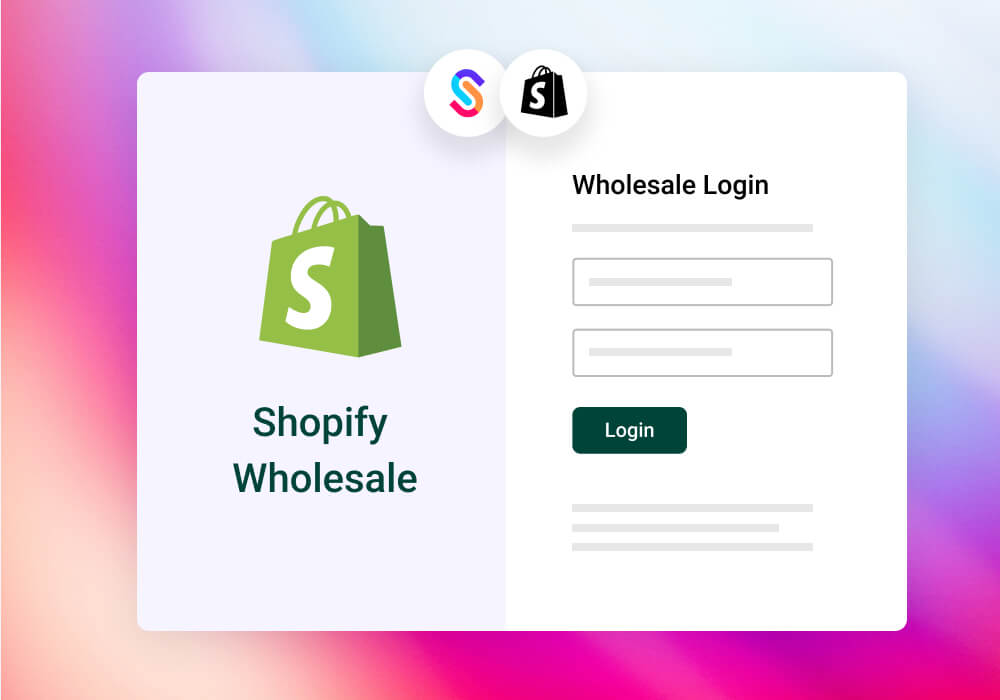Introduction
Last year, Shopify released their new B2B solution "B2B on Shopify” as a replacement to their previous offering, the Shopify Wholesale Channel. This month, Shopify formally announced its deprecation and set a deadline of 30th April 2024 for merchants using this to seek alternative solutions.

With ample time to prepare, merchants are now evaluating their options to seamlessly continue serving their wholesale customers. While Shopify offers their new B2B platform as a replacement, other robust alternatives like SparkLayer have gained traction. In this article, we will explore the implications of the Shopify Wholesale Channel removal and delve into available alternatives, with a closer focus on SparkLayer as a strong contender.
Understanding the Shopify Wholesale Channel removal:
Shopify's decision to remove the Shopify Wholesale Channel has been known for some time. This development means that merchants who have relied on the Wholesale Channel will need to migrate to another platform or solution to sustain their B2B operations effectively. As a result, businesses are taking the opportunity to assess the best alternative that aligns with their specific requirements.
Exploring the Shopify B2B platform:
As a replacement for the Wholesale Channel, Shopify introduced their new B2B solution available exclusively to Shopify Plus merchants. The Shopify B2B platform offers an integrated approach to facilitate B2B ordering on Shopify stores. It encompasses features such as price lists, payment terms, and company profiles, providing enhanced functionality for B2B merchants and their customers. You can learn more in our guide here.
While the Shopify B2B platform addresses certain limitations of the Wholesale Channel, it is essential to evaluate its compatibility with the unique needs of individual B2B businesses. Factors such as feature-set, custom development, deployment speed, maintenance, and integration capabilities should be carefully considered.
Introducing SparkLayer as a strong alternative:
Among the alternatives available, SparkLayer has emerged as a powerful option for B2B merchants seeking a comprehensive solution. SparkLayer is a purpose-built eCommerce platform that enables brands to rapidly scale and expand their B2B operations. It provides a self-service portal for B2B customers, enabling them to seamlessly place orders, manage accounts, and access other essential functionalities. One of SparkLayer's additional advantages lies in its seamless integration with mission-critical systems such as ERPs and CRMs, automating essential processes and streamlining operations. Learn more about how SparkLayer works.
Comparing Shopify B2B and SparkLayer:
While both the Shopify B2B platform and SparkLayer provide alternatives for B2B merchants, it is crucial to evaluate their respective offerings before making an informed decision.
- Feature-Set: Shopify B2B offers essential features such as price lists, payment terms, and company profiles. However, SparkLayer goes beyond these capabilities by offering additional advanced features like advanced pricing rules, Sales Agent Ordering, and the collaborative "Company Users" feature.
- Custom Development: Shopify B2B often requires extensive custom development to create B2B-specific interfaces for efficient ordering processes. In contrast, SparkLayer provides pre-built interfaces for quick ordering, streamlined account management, and other essential B2B functionalities, This approach saves valuable time and resources.
- Speed of Deployment: SparkLayer excels in terms of rapid deployment. Leveraging its pre-built interfaces and comprehensive feature-set, SparkLayer enables B2B merchants to implement their operations swiftly. Implementations can be completed within a matter of hours, even for complex requirements such as pricing rules and customer management. This accelerated timeline allows B2B merchants to gain a competitive edge by reducing time-to-market.
- Maintenance and Evolution: Maintaining and evolving a B2B implementation can be a significant undertaking for merchants. SparkLayer alleviates this burden by providing centralised management and comprehensive support. The platform is regularly updated and improved based on real-life customer feedback, ensuring it evolves to meet the changing needs of B2B businesses. This approach eliminates the need for extensive in-house development and maintenance resources, allowing merchants to focus on their core operations.
- Integrations: Integration capabilities are crucial for B2B merchants seeking seamless connectivity between their eCommerce platform and backend systems such as ERPs or CRMs. SparkLayer offers a REST API that enables effortless integration with various systems, facilitating automated data flows and streamlined processes. This ensures accurate data synchronisation and enhances operational efficiency for B2B merchants.
You can learn more about Shopify Plus and SparkLayer in our guide here.
Conclusion
With the upcoming removal of the Shopify Wholesale Channel, B2B merchants are actively seeking alternatives that can seamlessly replace this. Ultimately, B2B merchants should thoroughly evaluate their unique requirements, long-term goals, and budget when considering alternatives to the Shopify Wholesale Channel.
Above all, merchants are looking for a platform that has quick deployment, flexibility around payments for customers, and ease of use; and many of these merchants have already evolved from basic B2B functionality.
SparkLayer offers a compelling solution that not only addresses immediate needs but also provides a solid foundation for future growth and success in the B2B space. Its comprehensive feature-set, efficient implementation process, and ongoing support make SparkLayer a reliable choice for B2B merchants seeking to optimise their operations and deliver exceptional experiences to their wholesale customers.















